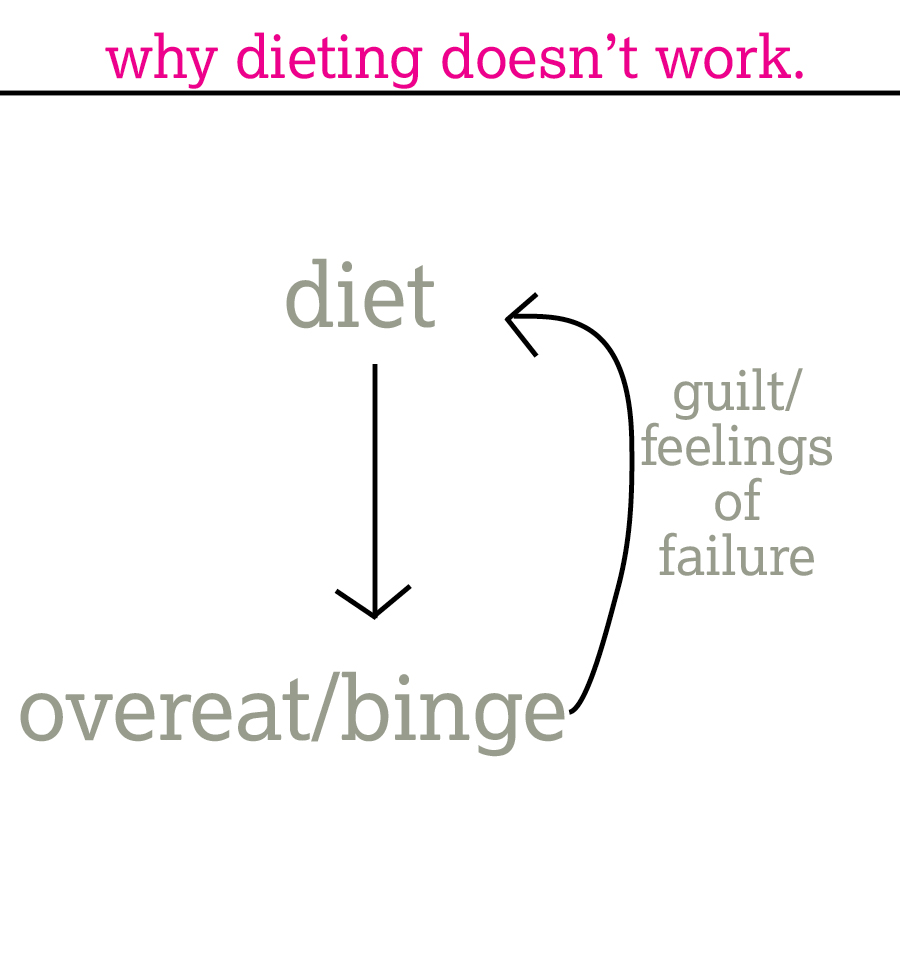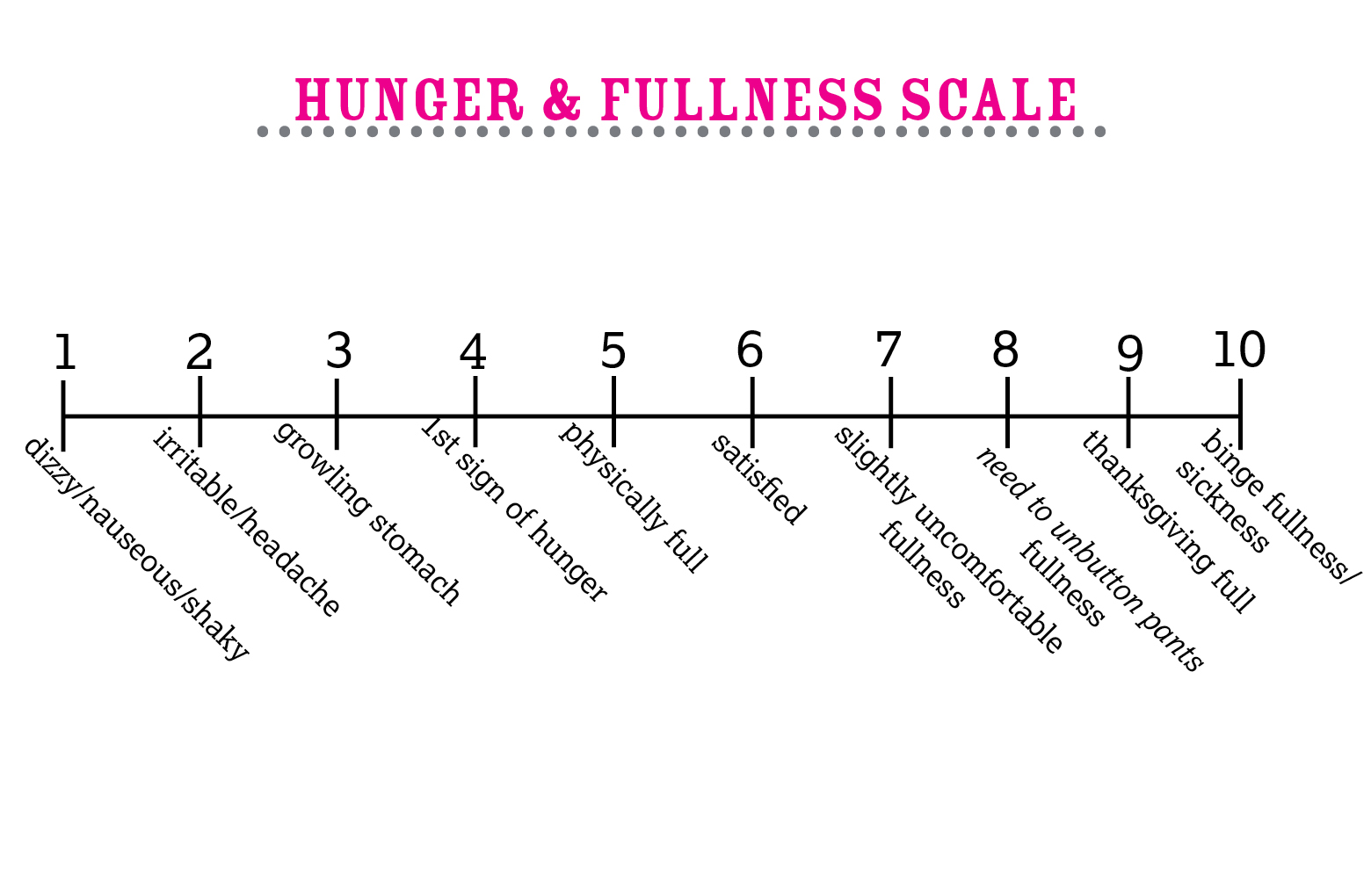
If You Can't Stick To A Diet, Your Body Is Telling You To Chill Out
Let's talk about why dieting sucks.
Dieting attempts to force your body into the wrong size, all the while increasing your obsession with food and body dissatisfaction. It's not ideal.
I mean, if your shoe size is 9, you wouldn't expect yourself to cram your foot into a shoe size of 6. So, why do you keep trying to diet and cram your body into a size it's not supposed to be in?
The diet industry is the only industry in which consumers blame themselves when the product fails. For instance, if you were to buy a car and it broke the next day, you would blame the car company, not yourself.
But when you go on a diet and the diet fails, you believe you are the failure and blame yourself.
I'm here to tell you that you are not the problem. It is the process of dieting that is the problem.
When you're dieting, your body experiences a short-term starvation. So when you “fall off the diet bandwagon” and allow yourself to eat again, your body naturally responds to this deprivation and starvation with extreme eating.
You didn't fail at dieting because you have zero willpower. You failed at dieting because you can't fight your biological drive to eat when you are starving.
You can see this illustrated in the diet-overeat cycle below:

It's easy to get stuck in the cycle when you undereat and end up overly hungry, which causes you to overeat and likely feel guilty about overeating, so you go back to dieting. Then, the cycle repeats.
So, what do you do instead of dieting? You start respecting your body by listening to its cues.
Cue the hunger and fullness scale:

With the hunger and fullness scale, you actually be in control again by allowing yourself to choose when, how much and what you eat.
You shift your focus to the internal (listening to your hunger and fullness cues and honoring cravings), rather than listening to external food rules that society sets for you.
When you sit down for a meal, ask yourself, "Where am I on the hunger and fullness scale?"
Ideally you'd be just below a four. Halfway through your meal, pause for three seconds to check in with yourself and ask, "Where am I now?" Eat until you can leave the table feeling between a six and seven.
Now for some real talk. Do I always eat until a six or a seven and stop? No, I don't.
I experience a nine on the fullness scale every year on Thanksgiving, and sometimes, food is so delicious that I just want more. So, I eat to an eight.
That's just to say overeating can be normal at times, and it's nothing to beat yourself up about. Sometimes, I just want a cupcake. And wanting that cupcake has nothing to do with being hungry. And that's OK to treat yourself once in a while.
So before you start a detox or any drastic weight-controlling process, give your body a chance and just start listening to it again.
For the next two days, I challenge you to bring a bit of mindfulness to your mealtimes by keeping track of your hunger and fullness before and after meals.
Simply make a note in your phone of where you fall on the hunger and fullness scale.
And if you don't have normal hunger and fullness cues, ask yourself, "Do I eat regularly? Or, do I constantly skip meals and snacks, even when I'm hungry?"
If you don't listen to your body when it tells you it's hungry, it's pretty easy to jack up your metabolism and stop feeling hunger regularly.
To get back in touch with your hunger and fullness cues, I encourage you to work with a dietitian to normalize eating and encourage your metabolism to properly function again.
This article was originally published on the author's personal blog.